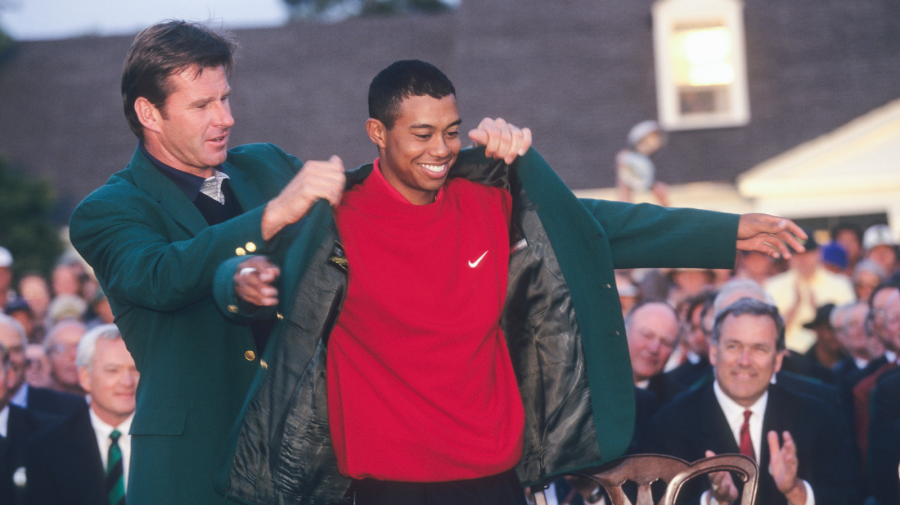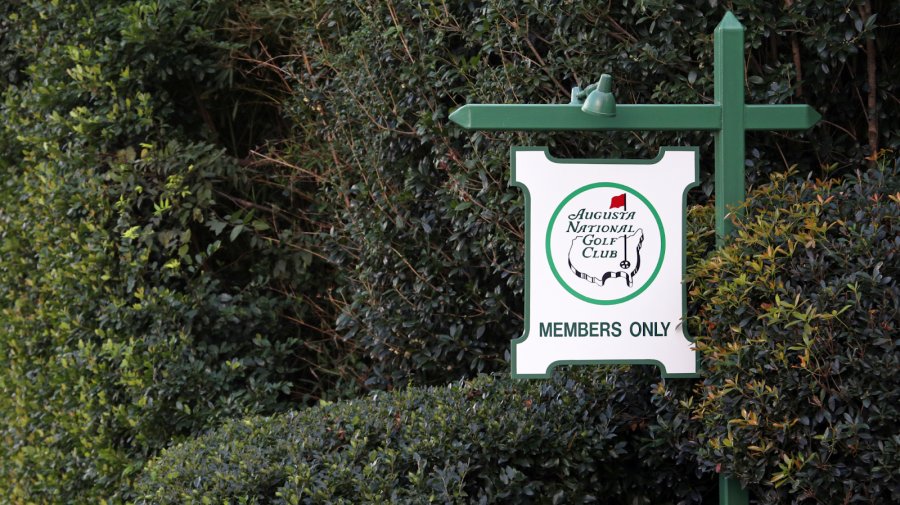
Whether or not the sport of golf is on your radar, chances are you’ve heard of the Masters. The name itself has an air of irresistible pomposity about it. Famously, tournament founder and golf legend Bobby Jones resisted calling it the Masters Tournament for this very reason for the first five years of its existence, when it was just known as the much less catchy Augusta National Invitation Tournament.
The Masters is the most important tournament in the world of golf, and the weight of its history is what makes it both unique and so great. At the same time, the history of the Masters is also what makes it so troubling.
I’m not much of a golf fan. I’ve never really played, and while I did work as a caddy for a summer or two when I was a teenager, I’ve never had any interest in the cultural world of the sport. I don’t take golf vacations; I don’t even own a set of clubs. Still, I’m a sports fan, and while I’m not an obsessive follower of the world of golf, I found myself, year after year, watching Masters Sunday — until recently. Something about the way the green grass pops on my TV screen; the hushed, reverent whisper of the announcers; and the overwhelming self-importance of the tournament wormed into me, at least for awhile. Here, I’d like to explore why that is — and why I find it so distasteful at the same time.
History Creates High-Stakes Action
Without question, the thing that gives the Masters most of its appeal is that of the four tournaments that make up golf’s Grand Slam — the Masters, the U.S. Open, the Open Championship (often called the British Open), and the PGA Championship — the Masters is the only one that takes place on the same course every year. That course, Augusta National in Augusta, Georgia, first opened in 1932. The tournament began in 1934. That makes it the baby of the bunch — it’s newer than all the other Slams.
The fact that every bit of its history has happened on one course gives the Masters a feeling of nostalgia that draws in spectators (both the “patrons” at the course itself and those of us just watching on TV). Augusta National is rife with catchy names for things, and these names start to feel like they are inviting you into some sort of secret club. The best example is “Amen Corner”: the name given to the back half of the 11th hole, all of the 12th hole, and the first couple of shots of the 13th hole.

The name itself has a strange origin story involving a writer named Herbert Warren Wind and an old jazz tune called “Shoutin’ in that Amen Corner,” but what’s so cool about the nickname is that it gives the action at those three holes around Rae’s Creek (another famous Masters name) a kind of high-stakes intensity.
You can feel the weight of history as you watch each golfer take aim at the notoriously difficult Sunday pin placement on the par three 12th hole (a.k.a. “Golden Bell”). You remember all the other years when weird and wild stuff happened in that same place — like Jordan Spieth’s meltdown that cost him the tournament in 2016 — and you wonder what might happen this time. Really, the whole tournament starts to feel like this after a while, and that’s the power of having it on the same course every year.
History Is Also a Reminder of How Far We Have to Go
The Masters has a slogan: “A tradition unlike any other.” Traditions are important, but, in some cases, they’re also evidence of an unwillingness to change. Augusta National admitted its first Black member in 1990, and did not invite a woman to join the club until 2012. Butler Cabin, a building by the 18th green where the winner of each year’s tournament is given the honorary Green Jacket, is a former plantation house.
That the Masters is so deeply enmeshed in nostalgia begs the question: nostalgia for what? That the club and the tournament have so often dragged their feet when asked to be more inclusive is one kind of answer to that question. The Masters tries its best to make you feel like you’re stepping back in time. Everything looks and sounds like the perfect version of what it’s supposed to look and sound like. They literally import pine straw, and there are long-standing rumors of piped-in birdsong, food dye in the lakes, and other bizarre efforts that the club makes to ensure everything seems more perfect than it is in reality.
The folks who run the Masters never seem to ask, though, who these kinds of efforts attract, and who they might be keeping away. Or, more likely, they do think to ask, and they know the answer. What is the cost of celebrating this kind of upscale, patrician lifestyle? There have been years, after all, during which the tournament was happening while protests were going on right outside the high-fenced walls. The cost, of course, is that many people who aren’t white men end up feeling left out of the secret-club-feeling the Masters bends over backwards to create.
The Importance of Inclusivity and Changing With the Times
Increasingly, I find myself feeling disenchanted with more and more of the institutions I loved when I was a kid. It’s impossible for me to ignore the failure of many of these institutions to embrace such a simple idea as inclusivity. Not that I want to ignore it; I know in my heart that being discerning is a good thing. As institutions that are unwilling to change stubbornly and short-sightedly hold their ground, they’ll also slowly become irrelevant, and new institutions, hopefully, will spring up in their place. I wish the Masters would see that greater openness and an honest acknowledgement of its history of racism and sexism would only mean that more people would get to experience what is so special about the tournament itself.
When I was little, the Masters felt like this magical thing that would show up on my TV every year. I remember watching Nick Faldo storm ahead as Greg Norman fell apart in ‘96, and Tiger Woods demolishing the entire field by a full 12 strokes at just 21 years old in ‘97.

Somewhere along the way, I understood that it was the history of the Masters that was making me so excited to watch it each year. That also came with an ever-increasing realization that history is about everything, not just the good, pretty, picturesque stuff — that the things making me feel invited in might be excluding someone else.
The Masters’ TV ratings have been in the midst of a steady decline for much of the past three decades. The people running the tournament can’t change the fact that they resisted inclusion for all these years, but they could acknowledge it openly and honestly; they could try to be better in the future. If they did, they might get back some of the viewers they’ve lost, and they might add some new ones they never had.

 Seth Landman
Seth Landman




